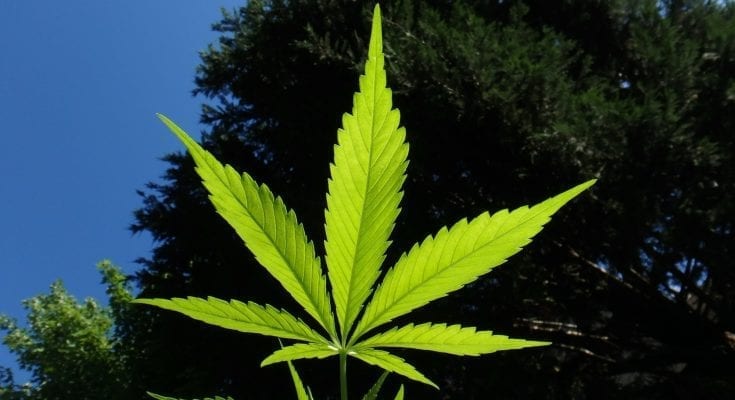The global hemp market size is estimated to be worth over $3.9 Billion and is growing at a CAGR of 14 percent.
More and more industries and people are adopting hemp for various uses, and with good reason. While hemp is still struggling to attain full legality in the U.S, it could be the crop that saves the economy and the world.
Thought you knew what hemp is? This is one of the most misunderstood plants. Here are seven mind-blowing hemp facts you never knew!
1. Can be Used to Fight World Hunger
Hemp seeds contain the human daily requirement for protein. This makes them a healthy meat alternative, which can prevent malnutrition.
The high protein and calorie-density nature of hemp seeds make them one of the most nutritionally dense foods on the planet. As such, this makes them to potentially be the most viable source of nutrition for hunger-stricken nations.
There are numerous ways in which you can consume hemp seeds. They are edible in their raw state or can be roasted. They may also be pressed into oil, ground into flour, or even sprinkled over other foods such as yogurt and salads.
Hemp milk is also available. You can buy it at the local supermarket, or make your own by throwing half a cup of hemp seeds with two cups of water into a blender. You can add sweeteners to taste.
2. Helps In the Fight Against Deforestation
Trees have always taken on the burden of producing paper, leading to massive deforestation to quench the world’s thirst for paper.
Unfortunately, trees grow slowly. Meaning we will never grow enough trees in time to replace the ones used in paper production. This severely affects ecosystems, and even changing climates of certain areas.
Hemp, on the other hand, is a fast-growing crop that can be used for the same purpose. Additionally, it is a lot cheaper to cultivate.
By adopting hemp as the new raw material for paper production, we might just be able to save earth in time.
3. Hemp Depollutes the Environment
Hemp is incredibly efficient at clearing the atmosphere of toxins, thus making it a potential solution to global warming. Global warming is the result of having high levels of carbon dioxide (CO2) in the atmosphere.
Trees are responsible for putting CO2 levels in check since they consume it to produce oxygen. Hemp, however, takes it up a notch by consuming four times as much carbon dioxide as trees do.
Combined with its short 12 to 14-week lifecycle, it makes for an ultra-effective and sustainable global warming solution.
What’s more, hemp is also able to remove radioactive chemicals from the soil.
4. Hemp Products Are Known for Their Durability
Before cotton started monopolizing the clothing, fabric, and textile industries in the 19th Century, up to 80 percent of those products used to be made from hemp. The hemp industry, therefore, was massive at the time.
Today, however, only a handful of companies make hemp clothing. Fortunately, people are appreciating the comfort and durability of hemp-made clothes. This has led to an increased appeal for hemp in the fashion industry.
Did you know that hemp was once used in the manufacture of motor vehicles? In 1941, Henry Ford designed a car that was made out of hemp, sisal, and wheat straw.
The only steel in the car was its tubular welded frame. This vehicle was, therefore, lighter than its pure-steel counterparts, yet it was able to withstand ten times the impact a steel car would.
Recently, hemp has become increasingly popular in home construction. Hempcrete walls are rot-free, mold-free, bug-free, fire-resistant, as well as being 100 percent biodegradable.
5. Even Though Both are Cannabis Sativa, Hemp is Not Marijuana
Most people associate the cannabis sativa plant with marijuana. However, hemp comes from the Sativa as well. Nonetheless, hemp and marijuana are not the same thing.
This is because hemp contains almost non-existent traces of tetrahydrocannabinol (THC), the psychoactive substance in ‘weed’ that gets you high. This implies that you do not have to worry about feeling high after enjoying hemp seeds.
6. Hemp Seeds are Up There With Flax and Chia Seeds in Nutritional Content
A discussion about healthy grains today feels incomplete if flax and chia seeds are not mentioned. Any nutritionist worth their salt is always going to recommend these grains as a diet staple. Hemp is quickly catching up to those two.
Today, there are numerous comparisons being made between hemp, chia, and flax, for the battle of the ultimate seed. One thing is for certain, however, hemp seeds are more than holding their own.
Thus is because, in addition to their high protein content, they also contain high levels of Vitamins A, B, D, and E, as well as fatty acids. This is why hemp seeds are now being regarded as ‘superfoods.’
Hemp also has potent anti-inflammatory, antibacterial, antimicrobial, and antioxidant properties, making it a scientific and medical marvel as well.
This collection contains hemp products that have diverse applications which you might find useful.
7. Hemp Helped Defeat the Axis Powers During World War II
Hemp became illegal in the 1950s. However, during the Second World War, the Department of Agriculture made a video titled the Hemp for Victory campaign, which encouraged the growth of hemp in the U.S.
This was because Japan had cut off its hemp supply, thus we had to grow our own. Hemp was vital for creating military utilities such as tents, sails, and ropes. In fact, the word ‘canvas’ is said to have its origins from the word ‘cannabis.’
Taking these Hemp Facts to the Bank
The hemp industry is growing at an astounding rate. For consumers, they not only stand to benefit from its medical benefits, but there are also economic opportunities to be exploited as well if these hemp facts are anything to go by.
It is time to take action and start using those benefits to your advantage.
Be sure to check out other interesting facts on our blog to build your knowledge.



